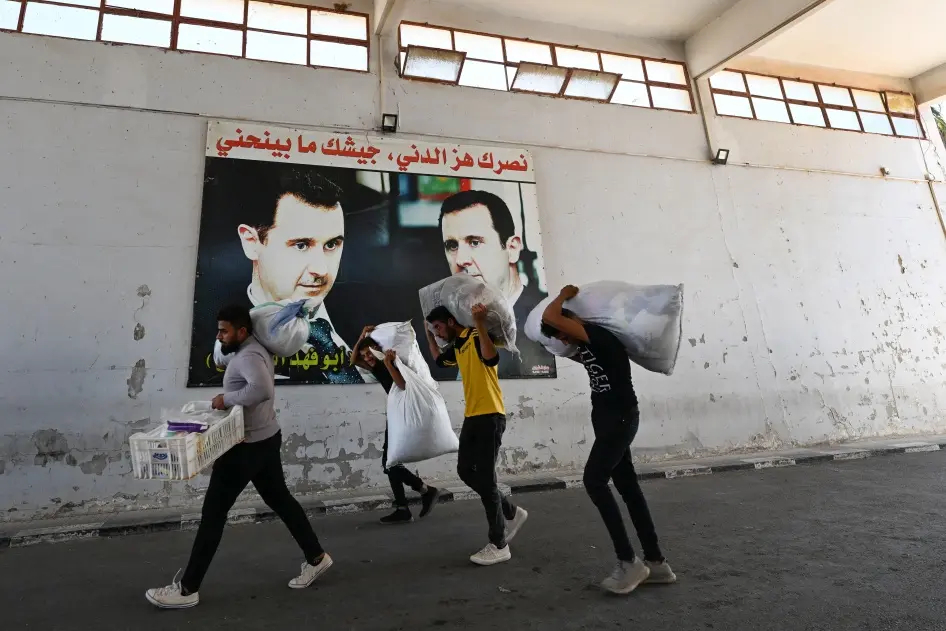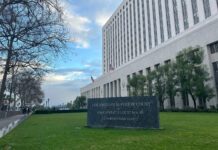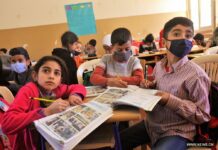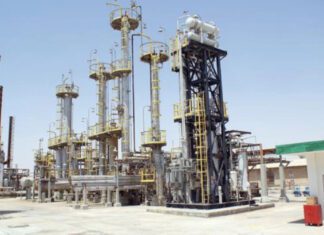
Syrians fleeing escalated violence in Lebanon and returning to regime-controlled Syria are facing alarming risks of detention, torture, and death in detention, according to a report by Human Rights Watch (HRW) released today. The report highlights the plight of Syrians compelled to return due to intensified Israeli airstrikes across Lebanon, which have driven hundreds of thousands back to Syria amid rising casualties, displacement, and an unstable humanitarian landscape.
Since September 2024, escalated Israeli strikes in Lebanon have reportedly killed at least 2,710 people, including 207 Syrians, according to the Syrian Observatory for Human Rights (SOHR). In response to the escalating violence, the Syrian Arab Red Crescent (SARC) reports that, between late September and October, 440,000 people – 71%t of whom are Syrian nationals – have crossed the border back into Syria. HRW Deputy Middle East Director Adam Coogle said they often face severe risks under Assad regime control, where enforced disappearances and abuses in detention are common.
“Syrians fleeing violence in Lebanon are being compelled to return to Syria, even as Syria remains unfit for safe or dignified returns,” Coogle said. “Deaths in custody highlight the blatant risk of detention and persecution for those seeking refuge.”
The HRW report details a pattern of arbitrary arrests and detentions of Syrians returning through official border crossings. The organization documented four arrests since September, while other human rights groups, including the Syrian Network for Human Rights (SNHR), have reported dozens more. The arrests, often carried out by the Syrian Military Intelligence Directorate, are frequently shrouded in secrecy, with families receiving little to no information on detainees’ whereabouts.
A 33-year-old woman who returned to Syria in October recounted to HRW how her husband, a former soldier living in Lebanon for over a decade, was detained immediately upon crossing the Dabousieh border. She has since received no information on his status. “They told me, ‘Continue on your way, he will stay with us,’” she said. “I wish we stayed under the rockets rather than go through this.”
Even before the recent Israeli airstrikes, Syrians in Lebanon endured harsh conditions, HRW reports, as they faced rising xenophobia, deportation threats, and resource scarcity. Following the strikes, reports indicate that some shelters in Lebanon are now prioritizing Lebanese and Palestinian nationals, leaving many Syrians without viable housing options.
Amid the worsening environment, some European leaders have promoted the view that Syria is safe for refugee returns. HRW called this assessment premature, urging host countries to halt forced returns and to address underlying conditions of displacement in Syria, where lawlessness and political repression persist.
HRW’s report also sheds light on recent suspicious deaths of deported Syrians held in Assad regime detention facilities, underscoring the dangers returnees face. Ahmad Nemer al-Halli, deported from Lebanon in May, died in July following alleged torture at Damascus’s notorious Palestine Branch detention center. His family had no contact with him during his detention and learned of his death upon his transfer to a hospital.
Abdulghani Mounir, a Syrian engineer deported from Turkey to northern Syria, was detained while attempting to return to his home in Aleppo. He was pronounced dead after 24 days in Assad regime detention, reportedly with signs of electrocution, HRW and related organizations noted. These cases underscore a consistent risk of abuse and death in detention for returnees, Coogle emphasized.
The Assad regime’s restriction of humanitarian access across Syria, particularly to detention centers, continues to hamper efforts to monitor abuses. International organizations, including the UN High Commissioner for Refugees (UNHCR), have long deemed Syria unsafe for return and have discouraged facilitated returns until “safe and dignified” conditions are verifiably established. HRW echoed this call in its report, advocating for independent monitoring mechanisms within Syria to document rights violations.
The SARC reports that, of the 440,000 people who fled Lebanon to Syria, nearly 57,000 have resettled in Syria’s northeast and northwest regions. Many of these returnees are women and children seeking refuge from deteriorating conditions in Lebanon, but HRW warns that the lack of support and credible information leaves returnees vulnerable and uncertain about future safety.
One Syrian woman in Lebanon described widespread confusion on social media, particularly among Syrians concerned about military service obligations and arrest risks. Military checkpoints and arrests along major routes have reportedly increased, HRW researchers said, and military intelligence personnel are known to demand bribes to secure detainee releases, according to relatives of recent detainees.
As HRW and other groups continue to push for safe, lawful conditions for Syrian refugees, Coogle warned that the surge in deportations and coerced returns “is not a sign of improved conditions in Syria, but of the stark reality that they’re being shut out of safer alternatives and forced back into a country where they still face risks of detention, abuse, and death.”








